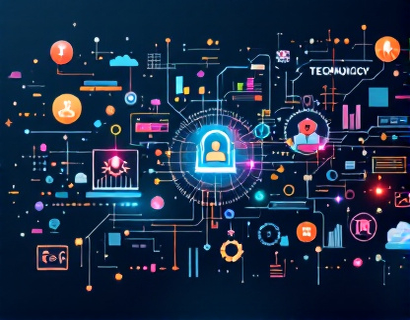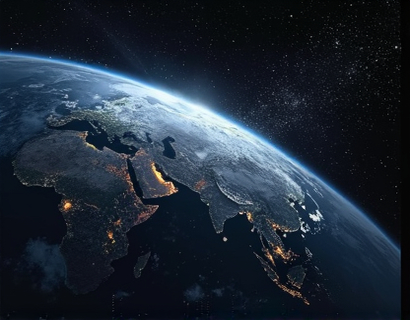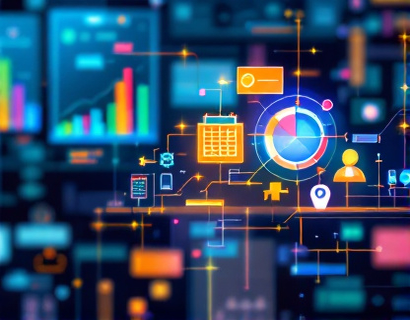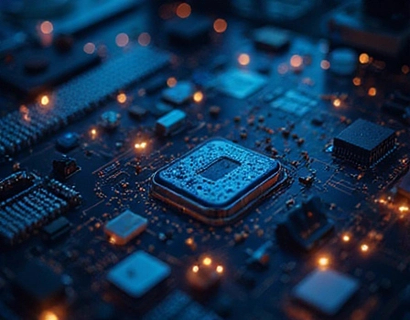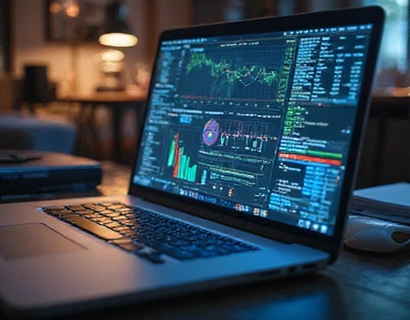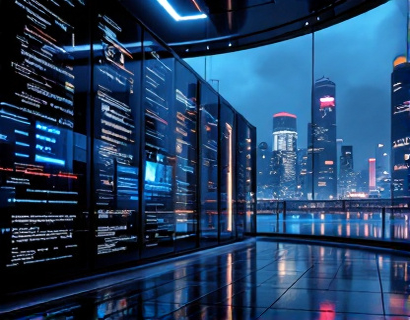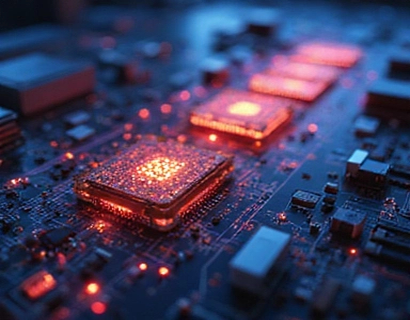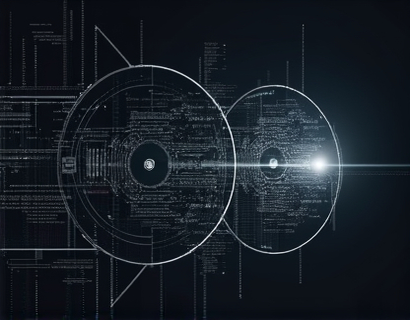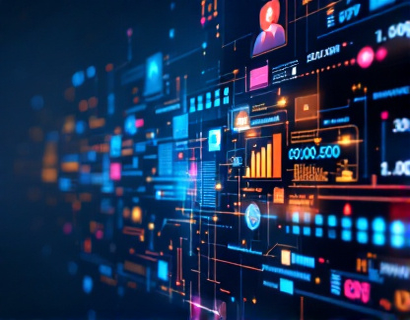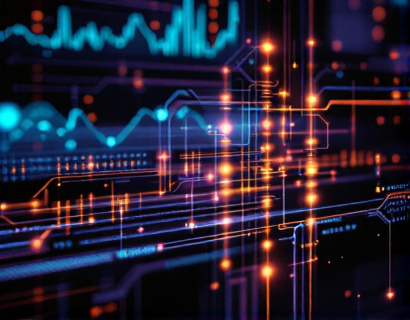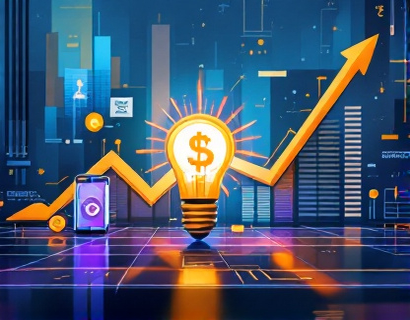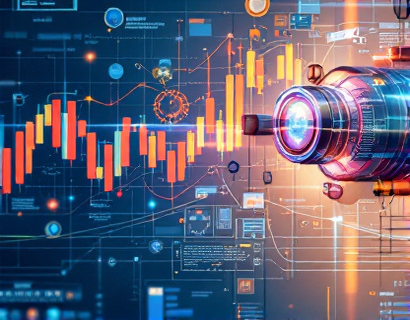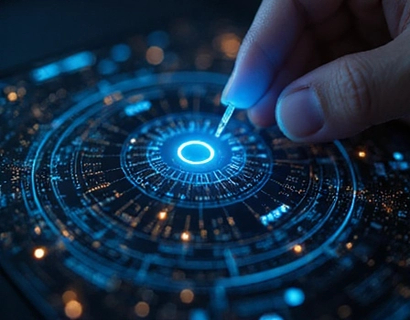Decentralized Innovation: Harnessing AI and Crypto for Next-Gen Digital Solutions
The intersection of artificial intelligence and cryptocurrency is giving birth to a new era of digital innovation, one that promises to transform how we interact with technology and each other. This article delves into the creation of decentralized applications and services that leverage the power of AI and blockchain to redefine digital experiences and boost user engagement. For tech enthusiasts, early adopters, and digital innovators, understanding this fusion is crucial as it holds the key to unlocking the next generation of digital solutions.
Decentralized applications, or dApps, are programs that run on a blockchain network rather than a centralized server. This decentralization not only enhances security and transparency but also empowers users by giving them control over their data and interactions. When combined with AI, these applications become even more potent, capable of learning from user behavior, adapting to individual needs, and providing personalized experiences.
The foundation of this revolutionary fusion lies in blockchain technology. Blockchain provides a decentralized ledger that ensures data integrity and immutability. This is particularly important for AI systems, which rely heavily on data. By using blockchain, AI models can access a tamper-proof dataset, ensuring that the insights derived from this data are reliable and trustworthy. This synergy between blockchain and AI is essential for building trust in decentralized systems, a critical factor for widespread adoption.
One of the most significant advantages of decentralized AI applications is their ability to operate without a central authority. This means that no single entity has control over the data or the algorithms, reducing the risk of bias and enhancing privacy. Users can contribute to the AI model's training by providing data or computational power, and in return, they can benefit from the services provided by the AI without the need for intermediaries. This peer-to-peer model not only democratizes access to AI technologies but also fosters a more inclusive and equitable digital ecosystem.
AI-driven decentralized applications can be categorized into several key areas, each with its own set of applications and potential impacts. One prominent area is decentralized finance, or DeFi, where AI enhances trading, lending, and investment strategies. AI algorithms can analyze vast amounts of financial data to predict market trends, optimize portfolios, and automate trading processes. These AI-powered DeFi platforms offer users greater control and potentially higher returns, all while maintaining the transparency and security of blockchain.
Another area is decentralized identity management. Traditional identity systems are centralized and vulnerable to breaches and misuse. Decentralized identity solutions use AI to create self-sovereign identities, allowing users to manage their digital identities securely and privately. AI can help verify identities, detect fraud, and ensure compliance with regulations, all without compromising user privacy. This not only enhances security but also empowers individuals by giving them ownership over their personal data.
Healthcare is yet another sector that stands to benefit immensely from decentralized AI solutions. AI can analyze medical data from various sources, including wearables and electronic health records, to provide personalized health insights and predictive analytics. Decentralized platforms can facilitate secure sharing of medical data among healthcare providers, researchers, and patients, accelerating medical discoveries and improving patient care. AI-driven diagnostics and treatment recommendations can be made more accurate and accessible, reducing healthcare costs and improving outcomes.
The creative industry is also experiencing a transformation through decentralized AI. Content creation, from music and art to writing and video production, can be enhanced by AI tools that generate ideas, assist in the creative process, and even produce high-quality content. Decentralized platforms can enable artists and creators to monetize their work directly, bypassing traditional gatekeepers and ensuring fair compensation. AI can help in discovering new talents, curating content, and personalizing user experiences, creating a more vibrant and diverse creative ecosystem.
Gaming is another field where decentralized AI is making waves. Blockchain-based games can offer true ownership of in-game assets through non-fungible tokens (NFTs), and AI can enhance gameplay by creating dynamic and adaptive environments. AI-driven NPCs (non-player characters) can provide more realistic and challenging experiences, while AI-powered matchmaking can ensure balanced and enjoyable games for all players. Decentralized gaming platforms can also reward players with cryptocurrency, creating new economic models and incentives within the gaming industry.
The underlying technology that enables this decentralized innovation is the blockchain. Blockchain's inherent characteristics of transparency, security, and decentralization make it an ideal platform for AI applications. Smart contracts, self-executing contracts with the terms directly written into code, can automate and enforce the rules of decentralized applications. This reduces the need for intermediaries, lowers transaction costs, and increases efficiency. The immutability of blockchain ensures that once data is recorded, it cannot be altered, providing a reliable foundation for AI models and their operations.
However, the integration of AI and blockchain is not without challenges. One of the primary concerns is scalability. Blockchain networks, especially those using proof-of-work consensus mechanisms, can struggle to handle the high computational demands of AI algorithms. This has led to the development of more scalable blockchain solutions, such as proof-of-stake and layer-2 protocols, which can support the resource-intensive operations of AI without compromising on security or decentralization.
Another challenge is the interoperability between different blockchain platforms and AI systems. As the ecosystem grows, ensuring that various decentralized applications can seamlessly interact and share data is crucial. Standardization efforts and cross-chain technologies are being developed to address this issue, enabling a more connected and cohesive decentralized landscape.
Privacy is also a significant concern in the realm of decentralized AI. While blockchain provides transparency, it can also expose sensitive data. Techniques such as zero-knowledge proofs and homomorphic encryption are being employed to ensure that data remains private while still being usable for AI computations. These cryptographic methods allow AI models to process encrypted data without revealing the underlying information, maintaining user privacy and data security.
The future of decentralized AI and blockchain is promising, with numerous potential applications across various industries. In addition to the areas already mentioned, decentralized AI can revolutionize supply chain management by providing transparent and tamper-proof tracking of goods, enhancing traceability and reducing fraud. In the realm of education, AI-driven decentralized platforms can offer personalized learning experiences, adaptive assessments, and secure credentialing, making education more accessible and effective.
Moreover, decentralized AI can play a pivotal role in addressing global challenges such as climate change and social inequality. AI models can analyze environmental data to predict and mitigate the impacts of climate change, while decentralized platforms can facilitate community-driven initiatives and equitable resource distribution. The combination of AI and blockchain can empower marginalized communities by providing them with tools and resources to participate in the digital economy.
As the technology continues to evolve, it is essential for developers, researchers, and policymakers to collaborate and address the ethical and regulatory considerations of decentralized AI. Ensuring that these innovations are used for the greater good, while minimizing potential risks, will be key to their successful adoption and integration into society.
In conclusion, the fusion of AI and blockchain is paving the way for a new digital era characterized by decentralized innovation, enhanced user control, and transformative applications. For those interested in the future of technology, understanding and engaging with this intersection is not just beneficial but necessary. The decentralized transformation powered by AI and crypto is here, and it is reshaping the digital landscape in ways we are only beginning to imagine.








